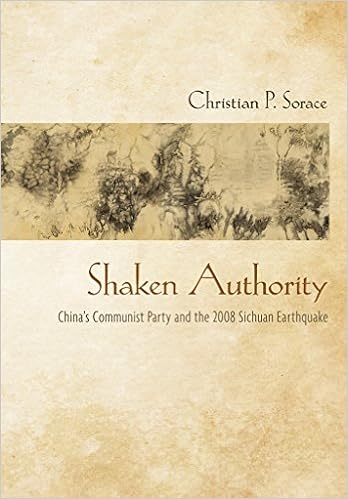"An excellent and detailed account of how the meaning of concepts and even of the single words of which they consist becomes tools of the [Chinese Communist Party] to advance its agenda and shape people’s habits of speech and disposition.... Reading Sorace’s account is truly interesting and worthwhile.... An incredibly rich account of how discourse and culture play an essential role in Chinese politics in general. The use of Chinese phrases―both in pinyin and Chinese characters for comparison in the glossary―is flawless, which also makes the book a great read and rich source of information for sinologists, native speakers, and anyone with interest in Chinese political language."
(
Journal of Chinese Political Science)
"This book would interest China scholars across the board, students of disaster politics, humanitarian NGO workers, and the informed public interested in China's West. Sorace's provoking research questions and detailed discourse analysis, along with the ethnographic case studies, contribute to the field of Chinese studies and political science by raising questions as to the shallowness of the dominant 'it's the economy, stupid' credo that had allegedly killed the ideology and political discourse, despite its indispensability to any complete analysis of contemporary Chinese politics."
(
The China Quarterly)
"Christian Sorace's book on the reconstruction after the 2008 Wenchuan earthquake is an excellent study on Chinese communist ideology, governance and politics.... Sorace's book is robustly empirical, and its understanding of contemporary Chinese politics and the role of ideology is theoretically significant. It is easy to agree with Sorace's main argument that ideology is very much present in the way the party makes its decisions even today, and scholars would do well not to neglect the influence of ideology on the way policies are formulated, implemented, and propagated in China."
(
china information)
"Sorace's work provides important empirical correctives to several prevalent hypotheses of sociopolitical change in China after the 2008 Sichuan earthquake.... Offers profound insights into how power works in China by grounding abstract Party discourse in concrete state practices. The author demonstrates how to conduct a good discourse analysis study by analyzing texts in their contexts, which requires extensive knowledge of the sociohistorical background of the data and a deep understanding of the theories revolving around the theme under study."
(
Pacific Affairs)

沒有留言:
張貼留言